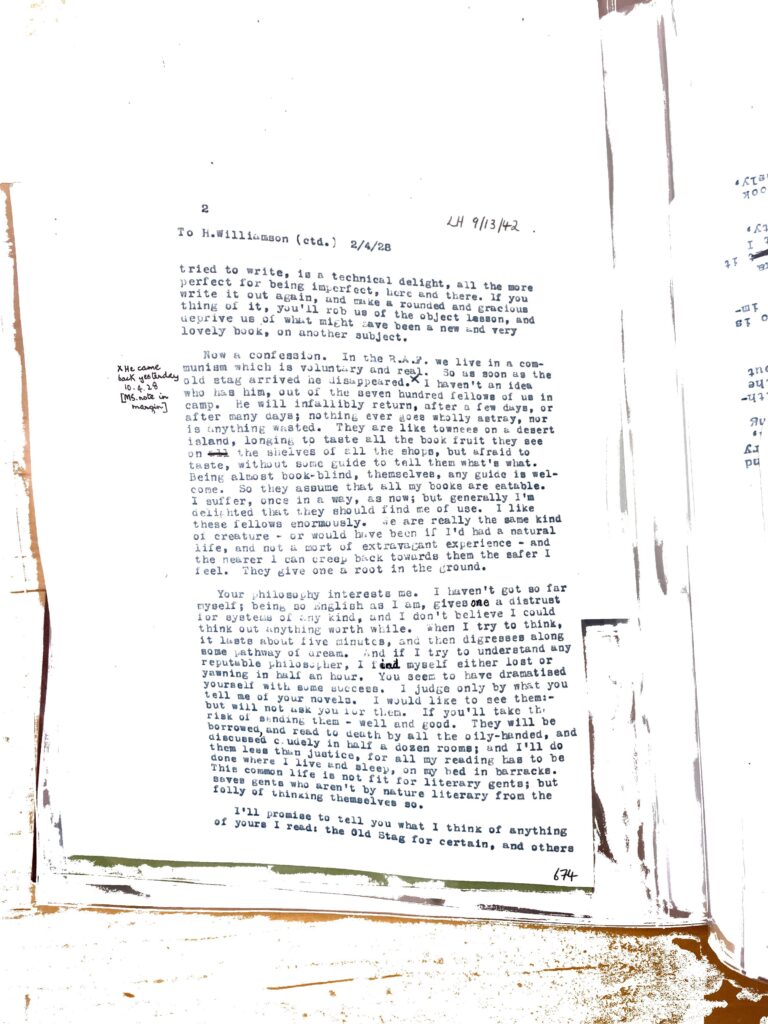Correspondence – Page 32
Correspondence
Page 32
2
To H.Williamson (eda.) 2/4/98
I tried to write, is a technical delight, all the more
perfect for being imperfect, here and there. If you
write it out again, and make a bona fide and gracious
thing of it, you’ll rob us of a techincal and graceful
deprive us of what might have been a new and very
lovely book: on another subject.
Now a confession. In the East, we live in a com-
munism which is voluntary and real, so us soon as the
new arrivals are stark arrived we dismounted K., who hasn’t an idea
what is
drama in, who has him, but of the seven hundred tribes of us in
Mesopt. camp, is still intelligibly rising. After a few days he
after many days; nothing ever goes wrong, very, nor
is anything wanted. Our own towns or desert
Khatha coming to taste all the book fruit they see
on all the shores of all the shers, but afraid to
taste, without some guide to tell them what, and
being almost book-blind, themselves. Any guide is wel-
come. So they assume that all my books are edible,
I suffer, once in a way, as now: but generally I’m
delighted lest they should find me of lack. I like
these fellows enormously. We are really the same kind
of creature – or would have been if life had a natural
life, and not a sort of extravagant experience – and
the nearer I can creep back towards them the
safer I
feel. They give one a root in the ground.
Your philisophy interests me. I haven’t got so far
myself: being so English as I am, gives me a distrust
for systems of any kind, and I don’t believe I could
think out anything of my while. When I try to think,
it lasts about five minutes, and then digresses along
some pathway of wrong, and if I try to understand any
reputable philos(pher), I find myself either lost or
ranging in hall or hame. You seem to have grasped:
yourself with some success. A judge only by what you
tell us of your physics. I would like to see things: –
but will not ask you are what. If you’ll lend it:
rise or meaning, w near. I shall be obliged. They will be
borrowed,and read to death by all the city-handed, and
discussed duly in half a dozen rooms; and I’ll do
them less than justice, for all my reading has to be
done where I lie: and often, on my bed in barracks.
This common life is not fit for literary gents; but
being sons sons themselve’s nature literary from the
folly of thinking themselves so.
I’ll promise to tell you what I think of anything
of yours I read: the Old Stag for certain, and others
Editor's Note: This text has been transcribed automatically and likely has errors. if you would like to contribute by submitting a corrected transcription.
